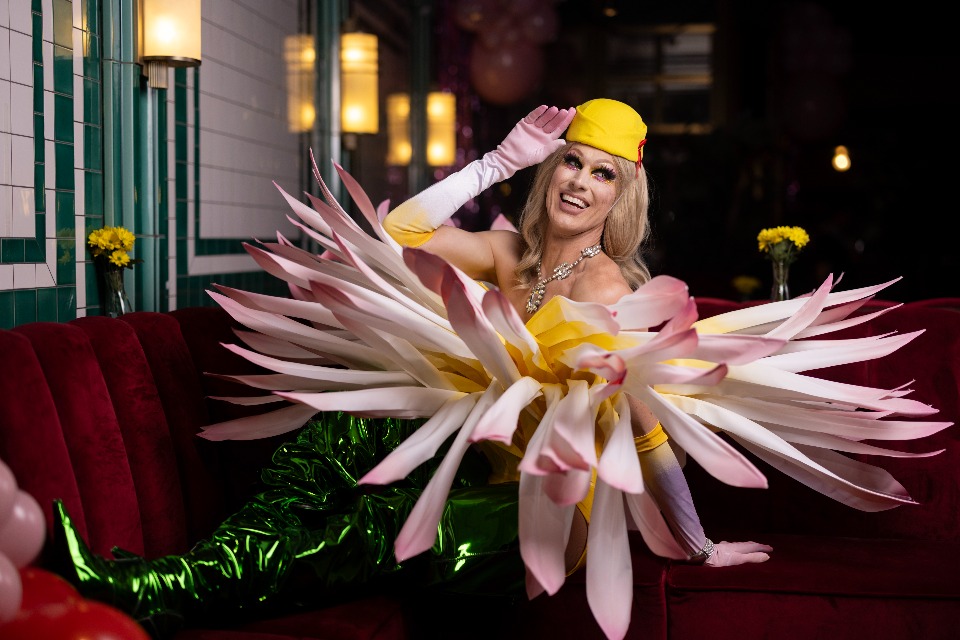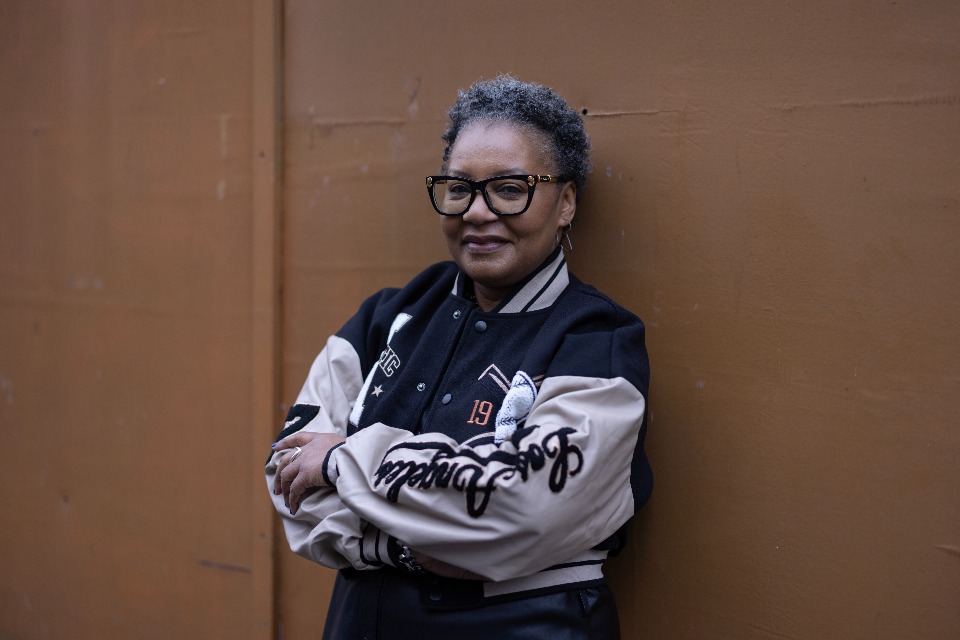Alan, Daisy and Rebecca share their stories of what it's like living with HIV and talk about how together, we can break the stigma around the disease.
Alan
Alan Spink is 68 and lives in East Sussex, England. He was diagnosed with HIV in 2003.
Alan now works as a community services manager at the Sussex Beacon, where he advocates for people living with HIV (PLWHIV) with an emphasis on challenging HIV stigma.
I was diagnosed in 2003 during a routine sexual health checkup. The diagnosis was a huge shock and sent me into such a deep mental health crisis that I removed myself from society until it became too much to bear.
I hid away.
Back then, HIV was still seen as the 'gay plague' by most of the population. There was also a stigma towards men who were positive from within the gay community. I was petrified that my family and friends would discover my status, reject me and demonize me.
So, I withdrew from gay society almost totally. My partner at the time had to get tested and it was horrific to put him through that. I always feared I might still give it to him, and it began to slowly destroy our relationship.
I felt guilty and ashamed that I had allowed this to happen to me.
I didn't cope well: I ended a successful career in IT and started working as a decorator just so I didn't have to deal with groups of people or get close to anyone. My mental health declined completely.
During one of my routine clinic visits, I broke down and I was referred to an HIV psychologist, who helped me enormously along with my HIV consultant.
Slowly, I gained confidence by speaking to groups of GPs learning about HIV and by participating in a patient panel for medical students at Sussex University.
This helped me greatly to re-adjust, but it took 10 years out of my life.
Eventually, I was encouraged to train as an HIV peer mentor, which I did, and I began mentoring others. Over those 2 or 3 years, my life changed completely as I faced and managed my status.
Just over 5 years ago, a job opportunity came up as an HIV case worker at the Sussex Beacon. I didn't think I was qualified, but I got the job and have been working there ever since.
To be an HIV positive person supporting my peers is such an honour for me.
Since doing this work, my life has become less about my own diagnosis and more about other people's HIV journey.
I love my job, and I love my life. Working within HIV awareness has made me feel useful, and I'm good at it.
To any young person living with HIV, I would say: take your medication every day, or injection as prescribed.
I would say that you will be okay. There are still a lot of us out there to support you.
Consider who you want to tell and remember that you don't have to tell anyone if you don't want to.
Talk to your peers. Almost everything you are feeling, we have felt like that as well.
Again, you will be okay.
Daisy
Daisy was diagnosed with HIV in 2018 after a routine sexually transmitted infection (STI) check.

At first, I was in total shock and denial - I insisted there must have been a mistake.
There was so much stigma in the way I reacted, I immediately thought of Princess Diana visiting AIDS patients and I thought: that's how people would see me now.
I am ashamed of that reaction, but it has helped me be more empathetic when I encounter stigma or discrimination (about HIV) now. I know, as I experienced it myself, that it's irrational and stems from misinformation and fear.
The same day I was diagnosed, I was so blessed to be matched with a peer mentor from Positively UK. He sat down with me on what was the hardest day of my life and shared his story.
I was told by doctors, nurses, pharmacists and specialists that I was going to be okay. But it was only when I had living, breathing proof of that sitting in front of me that it started to sink in. I call that my 'sliding doors' moment.
Since 2018, more clinics around the country have been able to offer in-clinic peer support. But it's essential that this life-changing service is rolled out to all the places where people may get diagnosed with HIV.
The HIV community is vibrant, passionate and welcoming. We come from all walks of life but this is the one thing that brings us together. I am also eager to live in a world that is free of new HIV transmissions.
I will keep banging my little drum and educating people about HIV - we have extremely good news to share about our treatment and health!
Many people seem to have trouble believing there is ZERO risk of transmission when someone is on effective treatment. I get it, I had a hard time wrapping my head around it too at first. But we have the research and receipts to prove it.
Most days I don't think about (my diagnosis) at all! I am on a new regime of medication that is delivered by injection once every 2 months. That means I'm free to get on with all the normal dramas of day-to-day life.
I think I'm healthier - mentally, physically and emotionally - than I ever have been. We only have one life and one body, they are so precious!
Rebecca
Rebecca has been living with HIV for the past 28 years since her diagnosis in 1995, together with her husband.
Rebecca has extensive experience of working in the HIV sector including being a speaker, moderator and trainer.

I migrated to the UK in 1995 to join my husband, who was studying at the time.
Unfortunately, he couldn't undertake much of his studies because he had a lot of co-infections like pneumonia and meningitis.
As he was so ill, our GP suggested he take an HIV test as there were a few indications that pointed to HIV. We got tested at the same time and of course, both results came back as positive.
I remember immediately wanting to know if my son also had HIV. I was relieved his test came back negative.
I was quite naive about the diagnosis. I had not met anyone living with the virus and therefore, had very little knowledge of it.
I think I had a delayed response, because I was so consumed with other day-to-day challenges: I had a very ill husband, a young child to look after, a full-time job to hold down and immigration and housing matters to deal with.
I guess I was not focused on the impact of my diagnosis at the time and my recollection was that it was all a bit of a blur.
In the early days of the HIV pandemic, HIV was considered a death sentence. We were actually being prepared for end of life, being introduced to the idea of preparing our wills, making funeral plans and putting together memory boxes for our children.
There was a lot fear amongst the HIV community and there was huge stigma against it in the general population too. It really was a dire time. I remember feeling isolated, which had a huge impact on my mental health and wellbeing.
We were very careful about who we shared our situation with. It made it difficult to engage with people socially, so we tended to stick with others who were living with HIV, like us.
The silver lining as I call it was that I did not need treatment straight away as my general health was very good. It was only after my husband passed on in 2002 that I finally had to deal with my own diagnosis head on.
I started treatment not long after my husband's passing - I recall it felt like a second diagnosis.
I sought out peer support really early on after my diagnosis, which for me was a life changer. Meeting another woman living with HIV through support services was a game changer for me.
That's where I got the knowledge, skills and support to cope with my diagnosis.
I have been working in the HIV sector for a long time, nearly as long as I have been diagnosed.
HIV has moved on so much that people can now live well with HIV just as long as someone without it.
I've learned people with HIV can do pretty much anything, including safely having children so my advice for anyone who is newly diagnosed is, go and live your best life!






